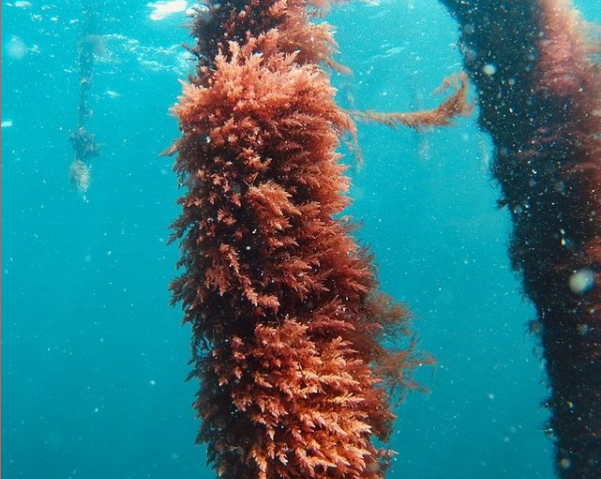From a shortlist of twelve innovative projects, the Sea Forest team managed to impress the judges to win the Ocean Impact Pitchfest.
The pioneering company from Tasmania has developed a commercially viable process for producing asparagopsis seaweed, which can be fed to cattle and sheep to reduce the methane production of the animal’s digestive systems.
Only a small amount needs to be added to animal feed, and it can reduce methane (from their farts) by 90%.
Plus, the growing of the seaweed itself offers huge potential for carbon drawdown as seaweed grows far faster than land-based plants, and through the process of photosynthesis, it pulls CO2 from the water. Which is a big deal, because about 25% of CO2 emissions end up in the ocean.
Sea Forest has developed a complete production process, from cultivating to growing, then harvesting and processing the asparagopsis. The process received considerable coverage when it was just at concept stage, but now Sea Forest has proven its commercial viability.
They received a co-investment of $675,000 from the Federal Government to help along their way, and with the backing of the Ocean Impact Pitchfest it is hoped more investors will back their huge potential for impact.
“It is such a great honour for a startup like Sea Forest to be named Winner of The Ocean Impact Pitchfest 2021. Our goal has always been to make rapid progress and meaningful impact on climate change through emissions reduction. We have a long way to go but the support provided to the company through Ocean Impact Organisation will assist in driving Sea Forest to scale its IP in science and engineering to deliver a sustainable seaweed aquaculture industry, regional employment and educational opportunities and positive environmental outcomes for Planet Ocean”. Says Sam Elsom, Co-founder and CEO of Sea Forest.
As the company ramps up operations it’s reported they’ll be able to produce 7,000 tonnes of seaweed per year, enough to feed around 150,000 head of cattle, and potentially cutting carbon emissions by about 400,000 tonnes.
This is a staggering achievement given the cultivation requires zero additional inputs, no feed and no fertilizer. From Triabunna, North of Hobart, the company has been hailed as the first commercial producer of asparagopsis.

